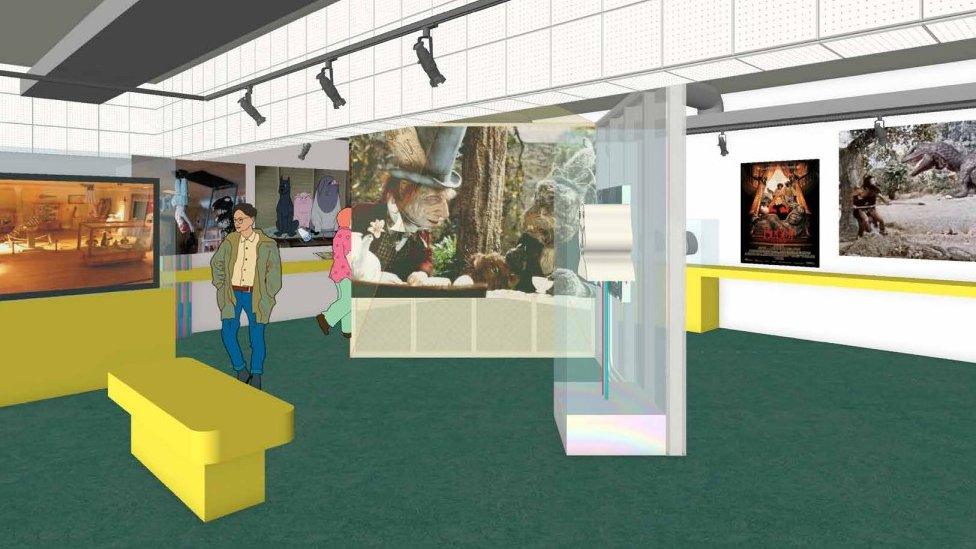Bradford museum unveils Halloween hauntings from its archive
- Published
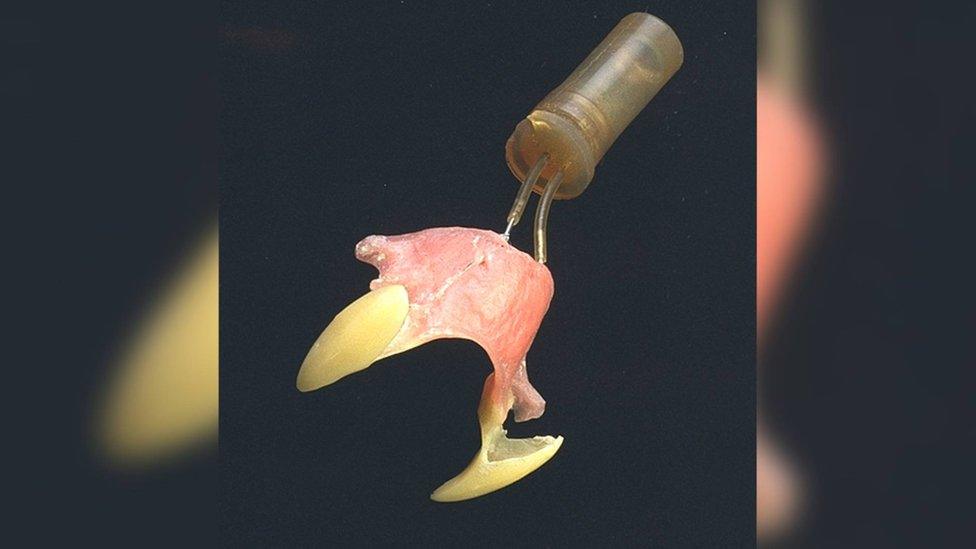
The Dracula fangs come with an attached reservoir in which fake blood was stored
Fangs worn by Sir Christopher Lee to play Dracula and a terrifying mannequin head are among the creepiest exhibits hidden in a museum's archive.
With Halloween looming, Bradford's National Science and Media Museum dusted off the cobwebs in its storeroom to unveil some of its scariest items.
The fangs were made so Sir Christopher could press the palate with his tongue to make blood drip from the ends.
A museum spokesperson said the items would be "sure to give you the creeps".
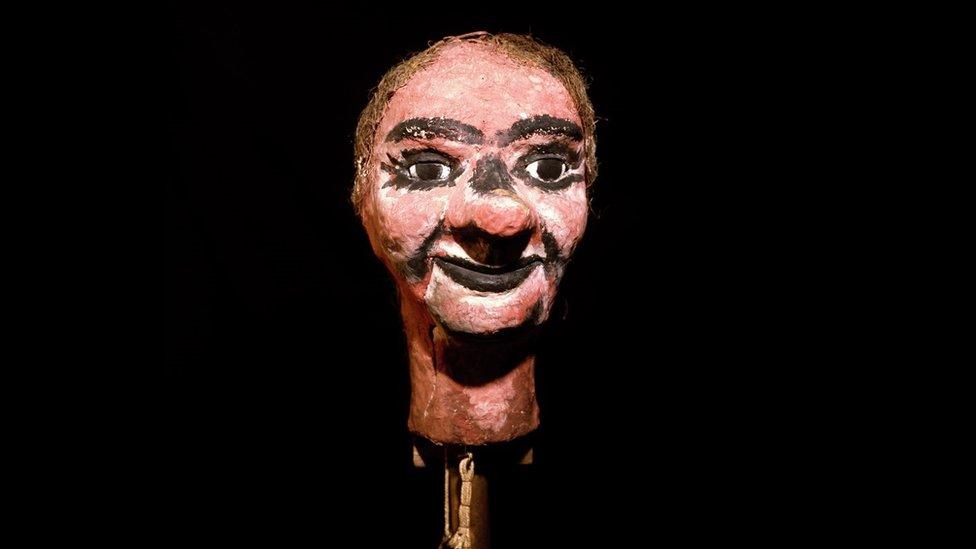
Stookie's highly contrasted facial features earned him a place as one of the museum's more terrifying exhibits
Another exhibit, known as Stookie Bill, was a ventriloquist's dummy's used by TV pioneer John Logie Baird to experiment with broadcasting.
Baird could not use real people as models because the lights were too hot so Stookie was used instead.
He was painted to give him as much contrast as possible to be picked up by the camera equipment, which had the result of making him look even scarier.
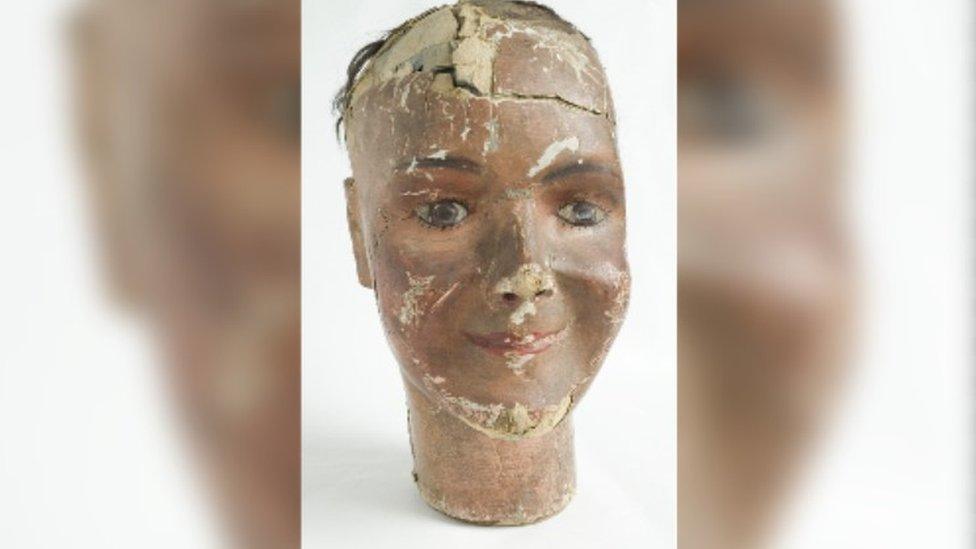
Stookie's ghoulish girlfriend Eustace was hardly a picture of perfection
Sometimes referred to as Stookie Bill's girlfriend, Eustace was another slightly terrifying mannequin head used by Baird in his colour television experiments.
Continuing the scary head theme, the museum has unearthed a pair of animatronic gorilla heads which were used in the 1997 film flop, Buddy.
The storyline saw a socialite and her husband live in a mansion with a collection of wild animals and adopt a sick young gorilla as their son.
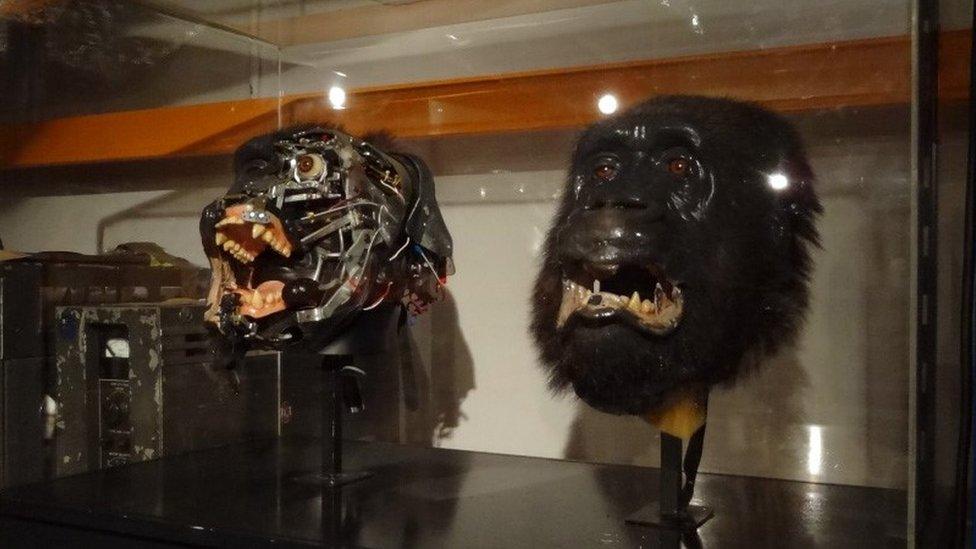
One of the gorilla heads is cut-away to display its inner mechanism
Also pulled from the museum's archives are black and white pictures apparently showing ghostly bodies looming out of swirling white clouds.
However, these are examples of how the camera does lie because they were taken by fraudulent spiritualist William Hope who claimed he could capture the image of ghosts in his photographs.
In the mid-19th century, Hope developed multiple exposure techniques to render the appearance of ghostly apparitions.
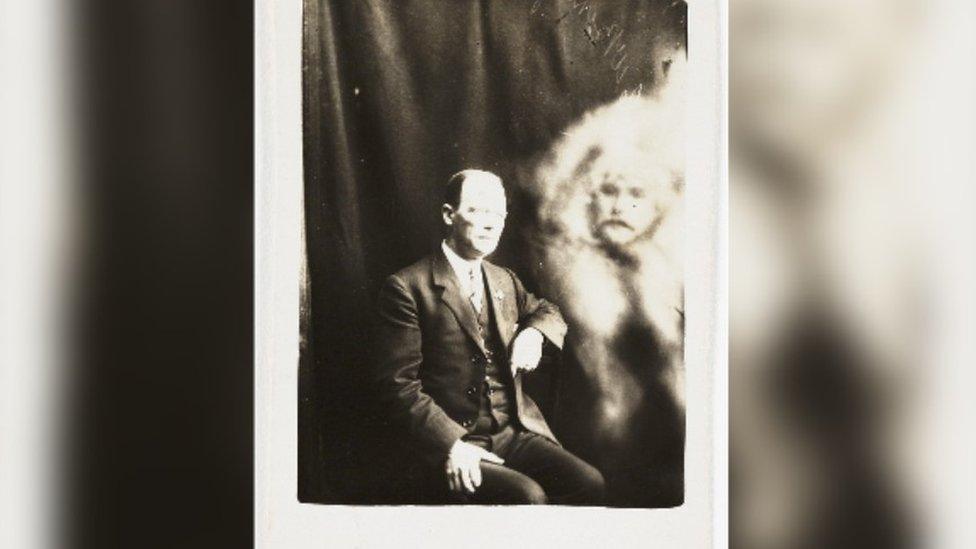
Photographer William Hope convinced people he could make the invisible visible in his pictures
Hope's work was later disproven but not before they had gained momentum following WWI when many bereaved people were desperate to find evidence of their loved ones living beyond the grave.
The city's Science and Media Museum opened in Bradford in 1983 with the aim of telling the story of sound and image technologies and their impact on our lives.
It is temporarily closed to the public until summer 2024 to undergo a £6m transformation.

Follow BBC Yorkshire on Facebook, external, X (formerly Twitter), external and Instagram, external. Send your story ideas to yorkslincs.news@bbc.co.uk, external.
- Published13 January 2023
